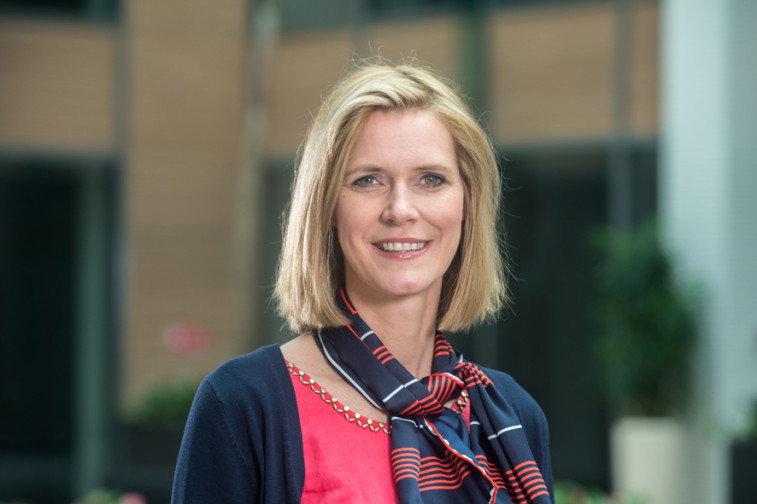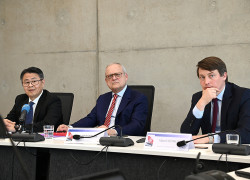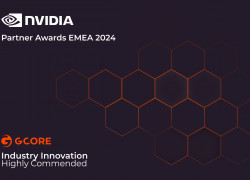PwC Luxembourg - AIFM Directive: governance requirements for the Alternative Investment Fund industry
The latest economic crisis highlighted the need to improve risk management processes and structures for Alternative Investment Fund Managers (AIFM). AIFM have become very significant actors in the European financial system, managing an important amount of assets on behalf of investors.
The reporting and oversight requirements go far beyond the work needed for the AIFMD filing. Processes and controls must be in place to manage commitments made to obtain the agreement
Steven Libby, Audit Partner, PwC Luxembourg
With the directive, EU regulators aim to create a solid framework whose objective is to monitor and control risks posed to investors, the financial markets and the companies in which they invest. After its adoption on 11 November 2010 by the European Parliament and its transposition into Luxembourg law on 12 July 2013, the Alternative Investment Fund Manager Directive (AIFMD) entered into force on 22 July 2013.
Tackling the new challenges of risk management and the reporting processes associated with the AIFMD’s supervision and prudential oversight framework was at the very heart of the Governance, Risk and Controls seminar organised by PwC Luxembourg on 26 November 2013.
Risk management in the context of AIFMD
The AIFM Directive introduces a harmonized regulatory regime, with new rules for authorisation, on-going operation and transparency of AIF Managers that were previously not subject to regulation, or subject to light regulation. These rules require major changes to the structures, strategies and operations of fund managers and funds in the non-UCITS sphere and affect all sectors, from hedge funds to real estate/infrastructure and other non-UCITS investment products.
“The AIFMD assigns clear roles and responsibilities” explains Xavier Balthazar, Advisory Partner, PwC Luxembourg. “All AIFs rely on two pillars: AIF Manager and depositary. The objective is to protect investors by segregating cash and assets from the manager’s own assets in order to reduce operational and legal risks.” Responsibilities of both core players are clearly defined with checks and balances in place to mitigate potential conflicts of interest. Regarding cash flows, for example, the depositary will centralise all information related to the AIF to ensure proper monitoring.
The AIFM Directive requires implementing sound risk management processes that impact the governance structure, risk measurement and disclosure. Benjamin Gauthier, Director, PwC Luxembourg, shares some best practices in risk approach: “The appropriate governance must be set up, with an independent Risk Management function, a clear risk appetite definition and reporting lines. Risk management should not solely focus on the portfolio monitoring but rather on the whole investment process, from sourcing to exit. Risk monitoring must be done at fund level, sub-portfolio level and investment level, but the measurements will differ.”
Tackling the reporting challenge
The AIFM Directive sets out numerous reporting and transparency requirements: annual reports, disclosures to investors, reporting to competent authorities. The regulator’s objective is to identify potential systemic risks within the AIF industry. To this end, the regulator needs access to relevant information on market players. The new reporting requirements provide a standard data collection framework and should therefore facilitate not only the comparison and exchange of information, but also the analysis and monitoring of systemic risks.
“Given the volume and the frequency of information to be provided, reporting to authorities might be the biggest challenge” adds Benjamin Gauthier, “but annual reports and disclosure to investors should not be left aside.” AIF Managers must provide both qualitative and quantitative information to regulators, with further obligations for those using leverage and for funds with controlling interests in non-listed companies. Also, AIF Managers must file aggregated reports at their level as well as individual reports at AIF level for each AIF they manage or market in the EU.
“The reporting and oversight requirements go far beyond the work needed for the AIFMD filing. Processes and controls must be in place to manage commitments made to obtain the agreement,” explains Steven Libby, Audit Partner, PwC Luxembourg. “Having an efficient internal control framework and internal controls reporting in place can help reduce some of the work for reporting on what’s actually in place. It gives AIF Managers comfort that all aspects of their obligations are covered: investment management, governance, remuneration and valuation policies, risk management process, internal audit and compliance. It will bring value as it will facilitate reporting to stakeholders, help respond to investor due diligence and other AIFMD requirements and bring overall coherence, ” adds Birgit Goldak, Advisory Partner, PwC Luxembourg.”
The AIFM Directive includes transition periods. To tackle the many legal and operational challenges of the directive, EU AIFMs existing before 22 July 2013 benefit from a transition phase that will end by July 2014 to comply. EU AIFMs created after 22 July 2013 must be fully compliant immediately.
The event organised by PwC Luxembourg gathered over 60 industry professionals.
Communiqués liés
2023 : une année de transition et de transformation
Lors de l’Assemblée générale qui s’est tenue le 24 avril 2024, les acti...
Cargolux posts profit for 2023
The Cargolux Group (Cargolux) generated a positive net result for its 2023 finan...
Gcore Recognised as Highly Commended in the Industry Innovat...
Gcore acknowledged for successful launch of first AI speech-to-text solution for...
MOMENTUM 2024 drives sustainable solutions forward
Deloitte’s annual MOMENTUM Conference fosters a dynamic exchange between indus...
Nouvelle recrue au service client de NO-NAIL BOXES : Nadine ...
NO-NAIL BOXES, le fabricant luxembourgeois de caisses pliantes en bois contrepla...
Réseau ETRE est le nouveau lauréat du Degroof Petercam Fou...
Réseau ETRE remporte la sixième édition du Degroof Petercam Foundation Award....
Il n'y a aucun résultat pour votre recherche







